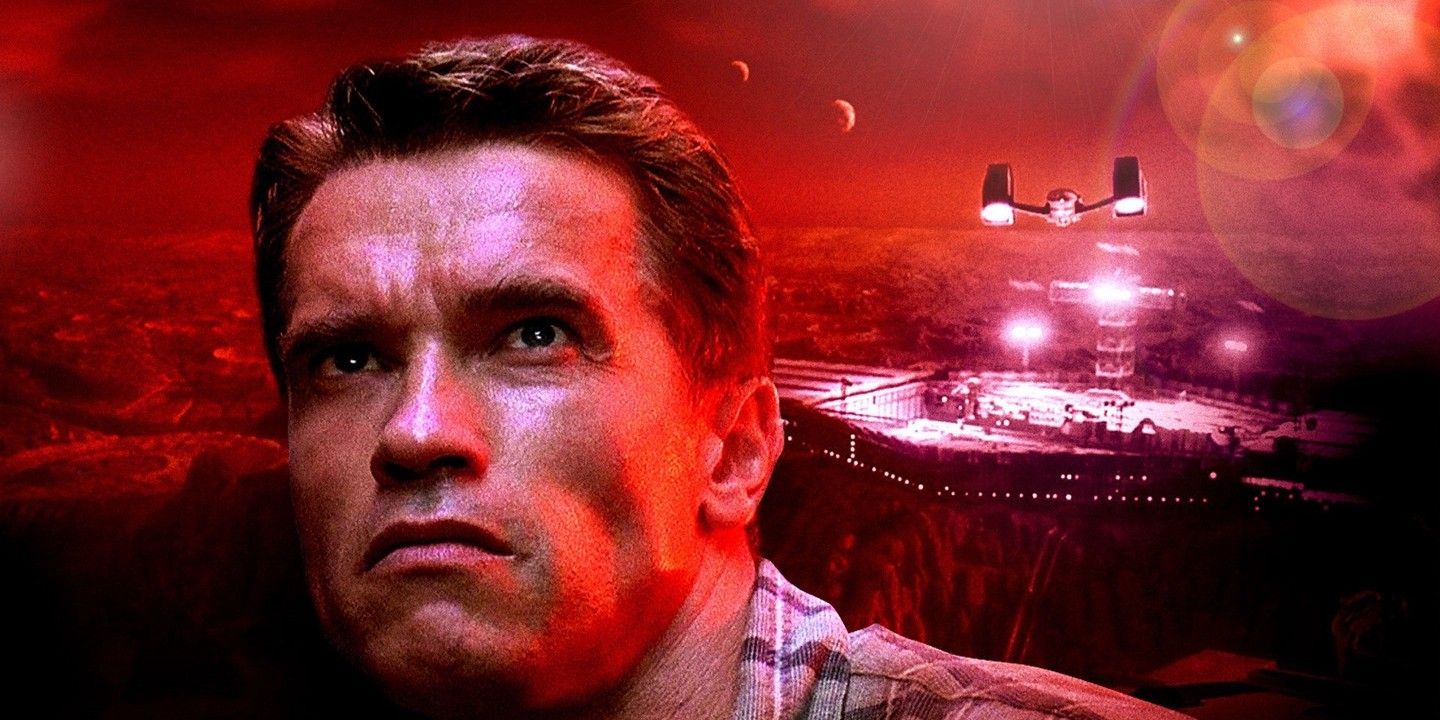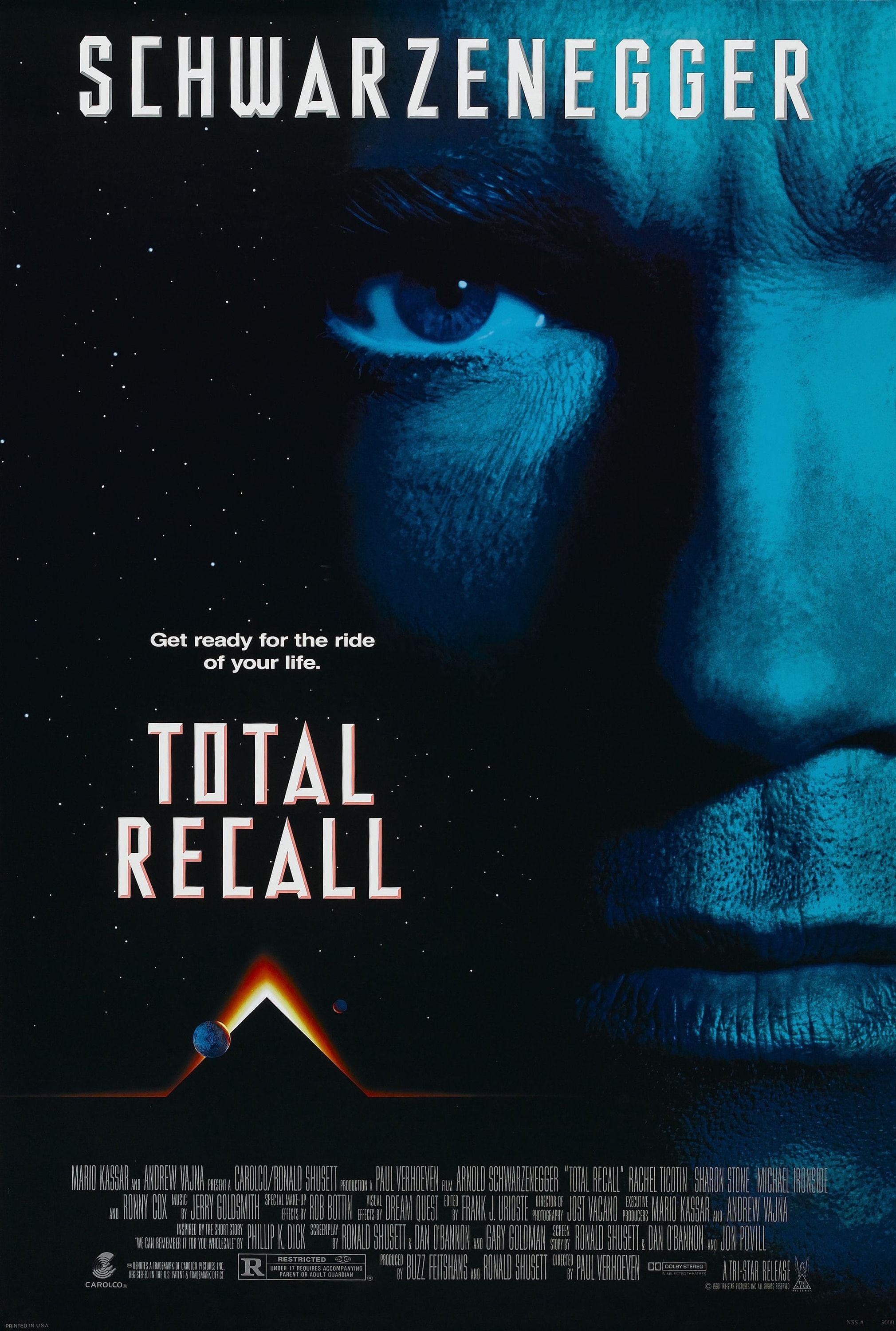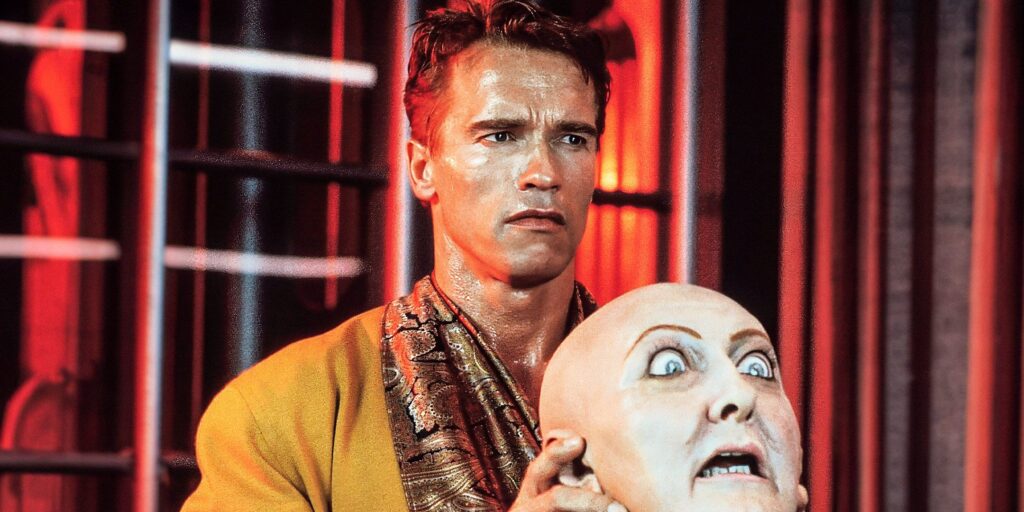Paul Verhoeven’s 1990 sci-fi classic Total Recall has persisted as one of the most debated action thrillers of the past 30 years, in large part due to its sleek, mind-bending narrative that still leaves viewers questioning what in the film is real. Starring Arnold Schwarzenegger as mild-mannered construction worker Douglas Quaid (and the elusive agent “Hauser”), the film follows him after he chooses to purchase a “Rekall” memory implant that goes horribly wrong, thrusting him into a dangerous journey to a dystopian colony on Mars in search of the wise resistance leader Kuato (Marshall Bell).
While Total Recall’s plot is certainly fantastical, one of its key elements is an overwhelming ambiguity that potentially renders all the film’s events after Quaid’s procedure as mere specters of a Rekall fever dream. Regardless of how popular this theory is, however, certain events indicate that parts of the film’s narrative cannot be implanted memories. This Schwarzenegger film is electrifying, and unquestionably one of the best action movies of the 1990s, but in a much fuller sense, it’s also one of many films that require multiple viewings to truly appreciate — and comprehend — their vast stories.
Total Recall’s Entire Story Is A Dream: Theory Explained
The Film Goes To Great Lengths To Keep The Audience Guessing
The crux of the dream theory lies in Quaid purchasing a Rekall-implanted memory of a secret agent traveling to Mars, a storyline that is eerily similar to the plot of the film thereafter. Proponents of the theory point to this scene at the moment the film breaks from reality, with all subsequent events being Quaid’s fractured hallucinations. However, the Earth-bound Quaid is shown to have a profound obsession with Mars even before he enters Rekall, frequently dreaming of the red planet and the mysterious Melina (Rachel Ticotin), who we learn later in the film is the Martian past lover of his true identity, Hauser.
Total Recall is based on the Philip K. Dick short story “We Can Remember It for You Wholesale.”
Those who adhere to the dream theory will argue that the scenes with Melina post-Rekall must be the result of the memory implant, since we see her figure on a monitor when the Rekall staff tasks Quaid with choosing his ideal woman. This is a clever smokescreen, and yet another example of Verhoeven’s aptitude at keeping the audience guessing. However, the flaw in this logic lies is that we do not see Melina wholly from Quaid’s perspective, which leads to the strongest counterargument against the dream theory: that entire scenes take place on Mars independent of Quaid’s involvement.
Scenes Take Place In Total Recall Without Quaid, Proving The Theory Wrong
These Scenes Wouldn’t Be A Part Of Quaid’s Implanted Memories
Much like how the theory that The Shining’s paranormal events are entirely hallucinations falls apart when Delbert Grady physically unlocks Jack from the pantry, Total Recall’s dream theory begins to wane when we examine the scenes that take place outside of Quaid’s perspective, such as when the villainous Cohaagen (Ronny Cox) speaks with Richter (Michael Ironside) on Mars; when Melina and the rebels regroup after Kuato’s death; and — most glaringly — when the Rekall staff panic after Hauser is briefly awoken before they can install the memory implant.

Related
10 Of The Best Quotes In Total Recall
Total Recall is one of Arnold Schwarzenegger’s most loved films. Fans still quote the iconic sci-fi movie, so here are 10 of the best one-liners.
Simply put, these events logically couldn’t and wouldn’t occur outside of Quaid’s consciousness, thereby illustrating that his Martian journey is authentic and that the friends and enemies he encounters continue on with their lives with or without him. In effect, the failed efforts of Lori (Sharon Stone) and Dr. Edgemar (Roy Brocksmith) to convince Quaid he’s dreaming is a microcosmic reflection of the movie’s quest to do the same to the audience, metaphorically grabbing us by the shirt collars and plunging us into the same disoriented state that Quaid carries in the surreal Martian landscape.
Why Total Recall Is Better Knowing The Movie’s Events Weren’t A Dream
The Film’s Message Becomes Infinitely More Profound
When Total Recall is seen through the lens of actuality, Verhoeven’s narrative is more than just an action-packed Arnold Schwarzenegger adrenaline rush: it becomes a testament to individuality and the belief in one’s perspective and ideas. Throughout the film, Quaid’s goals and beliefs are dismissed by his enemies, his friends, and even his wife, who all seek to gaslight him to cover up his role in the greater Martian conspiracy. However, Quaid’s conviction proves stronger — so much so that he’s even victorious against Hauser, rejecting his role as the agent’s idealistic pawn and forging his own vision for the maltreated red planet.
Total Recall nevertheless does invite its viewers to consider the authenticity of their own beliefs and to what extent they are influenced by outside forces, whether those be familial, ideological, or wholly detrimental to their individuality and character. At the end of the day, there’s a profound reason why Total Recall is considered one of the best sci-fi movies of the ’90s, and it’s one that corresponds with other great works of art throughout cinematic history. The film doesn’t tell you what to think — it dares you to ask questions.

Total Recall
Release Date
June 1, 1990
Runtime
113 minutes
Director
Paul Verhoeven




